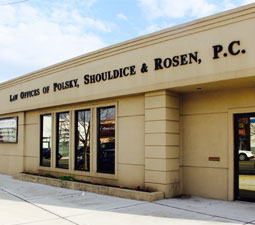Hospital Hazards
Hospitals are one of the most dangerous places to work in America. Every year, healthcare workers report more injuries than employees in construction, manufacturing and even coalmines.
In 2011 alone, hospital workplace injuries cost the industry about $6.2 billion and more than 920,000 lost workdays.
Most people probably do not think of hospitals as being an environment with high employee injuries, but if you are a hospital worker you will know that there are so many different ways you can get hurt at work.
How Hospital Workers' Get Hurt
As a hospital employee, you face injury risks on a daily basis. These risks include:
- Lifting and moving patients
- Exposure to viruses, bacteria, toxins and bodily fluids
- Handling or disposing of sharp (sometimes contaminated) objects, such as scalpels and syringes
- Moving quickly across slippery floors
- Possible physical attacks from patients
- Overexertion
The Main Cause Of Injury
For a hospital employee, one of the main causes of injuries is moving patients. For example, on a daily basis, you have to lift patients from gurneys, help them in and out of beds, and move them from room to room in wheelchairs.
One of the reasons for this problem is that the same safe-lifting techniques used in other industries, such as lifting heavy objects, are not adequate to help hospital workers safely pick up and move people.
If you are a nurse or nursing aid, you are among the highest-risk employees. In a typical day, you may lift patients dozens of times, and adequate help may not always be readily available to you.
Preventing Injuries: What You Can Do
As a work environment, you know that a hospital is a workplace filled with uncertainty. On a day-to-day basis, you never know what type of patients or ailments you are going to see.
You are probably aware that there are certain steps that can be taken to help reduce the possibility of you getting injured. These include:
- Being sure to follow guidelines for safe patient handling
- Using all the machinery and equipment as directed
- Taking care in safely disposing hazardous items (syringes, contaminants, etc.)
- If you need help moving patients, try to wait get some help if at all possible
- Making sure you report accidents and near misses as soon as they happen
By always trying to take these steps, you will be making your best efforts to ensure a safer work environment for you and your fellow employees. In the unfortunate event that you are injured at work, you will also be helping a potential Workers' Compensation (comp) case you may have in future.
What If I've Been Hurt At Work?
If you've be injured while working in a hospital, you may be eligible for Workers' Compensation to help cover your medical expenses and lost wages.
Every Workers' Compensation case is truly unique, and the Workers' Compensation claim process can be confusing for those who are not familiar it. This is where a Workers' Compensation Lawyer can help.
Disclaimer: For informational purposes only. This is not a substitute for legal advice. If you need legal advice please contact us.


